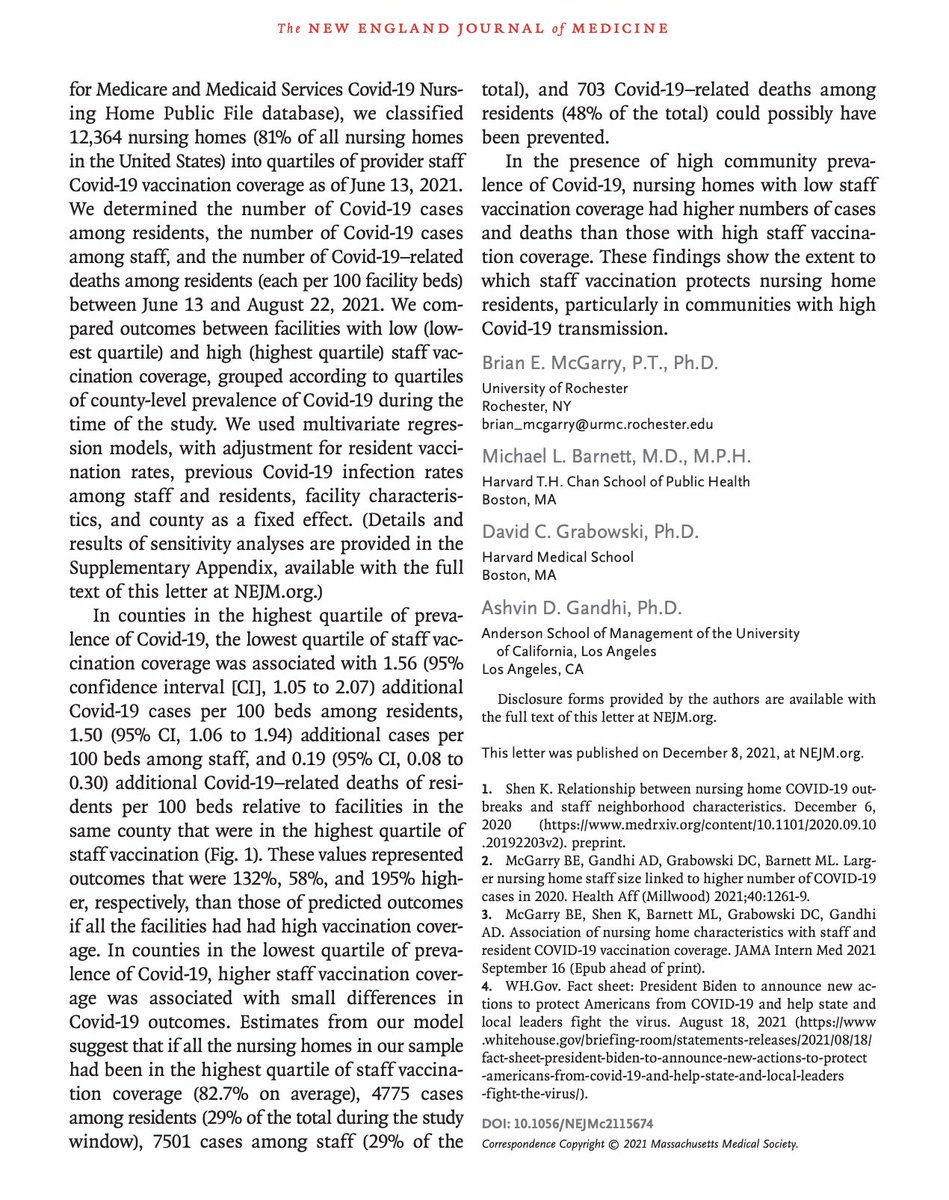
New work in @AnnalsIM, presentation at #ARM19 tomorrow
How hard is it for those with opioid use disorder (OUD) to find a buprenorphine prescriber in states with the worst overdose burden?
w/ @tamarabeetham @DrSarahWakeman @BrendanSaloner + Marema Gaye
annals.org/aim/article-ab…
How hard is it for those with opioid use disorder (OUD) to find a buprenorphine prescriber in states with the worst overdose burden?
w/ @tamarabeetham @DrSarahWakeman @BrendanSaloner + Marema Gaye
annals.org/aim/article-ab…

@tamarabeetham @DrSarahWakeman @BrendanSaloner @AcademyHealth @HarvardChanSPH @HarvardHPM @JohnsHopkinsSPH First, a poll before I share results:
What is your best guess for the average wait time to get a new appointment with a buprenorphine prescribing in states with a high burden of OUD (e.g. WV, OH, MA, NH)?
What is your best guess for the average wait time to get a new appointment with a buprenorphine prescribing in states with a high burden of OUD (e.g. WV, OH, MA, NH)?
@tamarabeetham @DrSarahWakeman @BrendanSaloner We did a “secret shopper” survey: 1,092 calls to 546 publicly-listed prescribers in WV, OH, MD, DC, MA and NH posing as people using heroin looking to restart buprenorphine.
Two calls to each prescriber – once as Medicaid-insured, once as uninsured/cash pay.
Two calls to each prescriber – once as Medicaid-insured, once as uninsured/cash pay.

@tamarabeetham @DrSarahWakeman @BrendanSaloner Outcomes we tracked:
1) New patient acceptance
2) Possibility of getting buprenorphine at 1st visit without delay
3) Wait time to 1st appt
4) Cost of appt for uninsured
1) New patient acceptance
2) Possibility of getting buprenorphine at 1st visit without delay
3) Wait time to 1st appt
4) Cost of appt for uninsured
@tamarabeetham @DrSarahWakeman @BrendanSaloner We got a response for 78% of our calls, covering 81% of in-sample prescribers.
Depressing initial result – half of all calls using SAMHSA public listings were erroneous, no longer active, wrong clinical setting (e.g. emergency room)
Big initial barrier to finding a prescriber
Depressing initial result – half of all calls using SAMHSA public listings were erroneous, no longer active, wrong clinical setting (e.g. emergency room)
Big initial barrier to finding a prescriber

@tamarabeetham @DrSarahWakeman @BrendanSaloner Key results:
New appointments:
- 46% of prescribers not accepting new Medicaid patients
- 38% not accepting new cash pay patients
Possible induction on 1st visit:
- 27% of contacts offered appointment with possible bupe at 1st visit for Medicaid
- 41% for uninsured/cash-pay

New appointments:
- 46% of prescribers not accepting new Medicaid patients
- 38% not accepting new cash pay patients
Possible induction on 1st visit:
- 27% of contacts offered appointment with possible bupe at 1st visit for Medicaid
- 41% for uninsured/cash-pay


@tamarabeetham @DrSarahWakeman @BrendanSaloner Despite high rates of rejecting new appts, wait times were surprisingly short when we actually reached a clinic taking new patients:
Median wait time 5-6 days (!) among those offering appts
Consistently low wait time across all subgroups
Median wait time 5-6 days (!) among those offering appts
Consistently low wait time across all subgroups

@tamarabeetham @DrSarahWakeman @BrendanSaloner What about cost?
Median cost until induction - $250
5% of prescribers charge over $500
54% of prescribers said there were unknown add’l fees for urine/lab testing
Median cost until induction - $250
5% of prescribers charge over $500
54% of prescribers said there were unknown add’l fees for urine/lab testing

@tamarabeetham @DrSarahWakeman @BrendanSaloner Other observations:
Variation at state level
- Biggest Medicaid/uninsured disparity in access in NH and OH
- MA had lowest rate of prescribers offering possible induction
Best appointment availability among NP/PAs, 275-waivered MDs
Lower availability in rural areas

Variation at state level
- Biggest Medicaid/uninsured disparity in access in NH and OH
- MA had lowest rate of prescribers offering possible induction
Best appointment availability among NP/PAs, 275-waivered MDs
Lower availability in rural areas


@tamarabeetham @DrSarahWakeman @BrendanSaloner Takeaways
1) It takes a lot of phone calls to find someone who might actually offer an appointment
2) Maybe because it’s so difficult, wait times are short among those taking patients
3) Disparity in rapid induction between Medicaid/cash pay: Medicaid formulary barriers?
1) It takes a lot of phone calls to find someone who might actually offer an appointment
2) Maybe because it’s so difficult, wait times are short among those taking patients
3) Disparity in rapid induction between Medicaid/cash pay: Medicaid formulary barriers?
@tamarabeetham @DrSarahWakeman @BrendanSaloner Policy implications
1) Need interventions to better match pts to prescribers who are open
2) Maintaining an accurate online prescriber directory should not be not that hard, why don’t we do it?
3) Medicaid programs need to pay more/reduce barriers to close disparities in access
1) Need interventions to better match pts to prescribers who are open
2) Maintaining an accurate online prescriber directory should not be not that hard, why don’t we do it?
3) Medicaid programs need to pay more/reduce barriers to close disparities in access
@tamarabeetham @DrSarahWakeman @BrendanSaloner Enormous thanks to my wonderful and talented team.
Especially for @tamarabeetham, who accomplished something remarkable leading this study while getting her MPH. Her effort got this work a best abstract award at #ARM19!!!!
More to come in this space
Especially for @tamarabeetham, who accomplished something remarkable leading this study while getting her MPH. Her effort got this work a best abstract award at #ARM19!!!!
More to come in this space
@tamarabeetham @DrSarahWakeman @BrendanSaloner Also read the very thoughtful editorial with points I didn't think of by @PoojaLagisetty @Amy_Bohnert
annals.org/aim/article-ab…
annals.org/aim/article-ab…
• • •
Missing some Tweet in this thread? You can try to
force a refresh




















